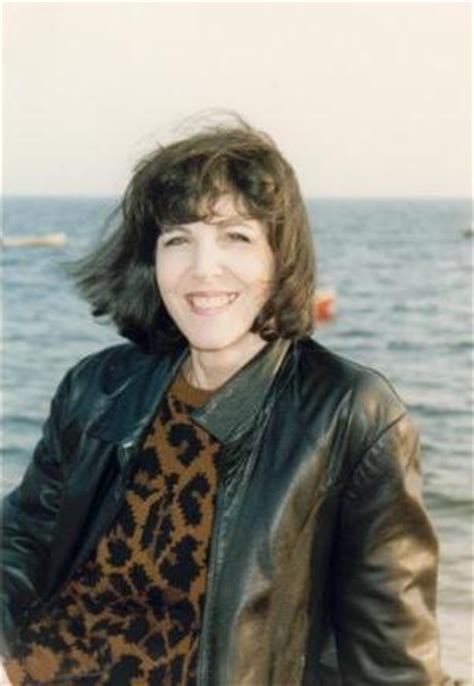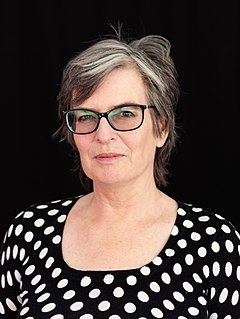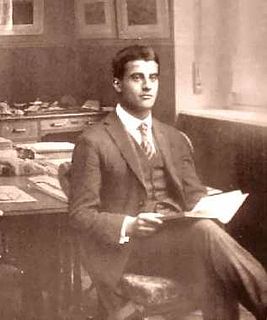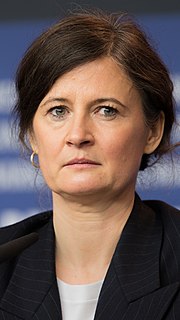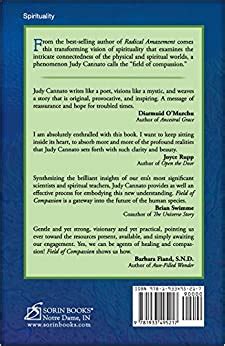A Quote by Susan Mitchell
Our greatest fear is that we will lose the love in our life... that we will be abandoned, left alone, bereaved, misunderstood, deprived, hated and rejected....but we can never be OUT OF LOVE. We are love and if our minds separate ourselves from who we really are it is a painful delusion. Ego personalities, including our own, might separate ourselves from love but love never dies because it is what we are made of.
Related Quotes
Love is never easy. We begin by loving the things we can, according to our stature, but it is not long before we find that what we love is other than ourselves and that our love is no protection against being wounded. Do we then speak to dominate what we love, to make it bend to our will, to stop it from hurting us even though to do so is to betray love? And that is only where the difficulty begins.
Throughout our lives we long to love ourselves more deeply and to feel connected with others. Instead, we often contract, fear intimacy, and suffer a bewildering sense of separation. We crave love, and yet we are lonely. Our delusion of being separate from one another, of being apart from all that is around us, gives rise to all of this pain.
There are two basic motivating forces: fear and love. When we are afraid, we pull back from life. When we are in love, we open to all that life has to offer with passion, excitement, and acceptance. We need to learn to love ourselves first, in all our glory and our imperfections. If we cannot love ourselves, we cannot fully open to our ability to love others or our potential to create. Evolution and all hopes for a better world rest in the fearlessness and open-hearted vision of people who embrace life.
But how can we love someone if we don't like him? Easy-we do it to ourselves all the time. We don't always have tender, comfortable feelings about ourselves; sometimes we feel foolish, stupid, asinine, or wicked. But we always love ourselves: we always seek our own good. Indeed, we feel dislike toward ourselves, we berate ourselves, precisely because we love ourselves; because we care about our good, we are impatient with our bad.
If we don't love ourselves, we would not love others. When someone tell you to love others first, and to love others more than ourselves; it is impossible. If you can't love yourselves, you can't love anybody else. Therefore we must gather up our great power so that we know in what ways we are good, what special abilities we have, what wisdom, what kind of talent we have, and how big our love is. When we can recognize our virtues, we can learn how to love others.
Each of you knows that the foundation of our faith is charity. Without it, our religion would crumble. We will never be truly Catholic unless we conform our entire lives to the two commandments that are the essence of the Catholic faith: to love the Lord, our God, with all our strength, and to love our neighbor as ourselves.
God’s love sets us free from the need to seek approval. Knowing that we are loved by God, accepted by God, approved by God, and that we are new creations in Christ empowers us to reject self-rejection and embrace a healthy self-love. Being secure in God’s love for us, our love for Him, and our love for ourselves, prepares us to fulfill the second greatest commandment: To love our neighbor as ourselves.
To see ourselves as we truly are—a wisp of love itself—is perhaps our deepest fear. But it is also our greatest grace. If we are to be the new human, we must begin by embracing love, which always seeks to incarnate itself. Love is enfleshed everywhere. Everywhere the Holy One is shouting and whispering, ‘Let me love you.’ And all that is asked of us is to receive. In reality, that is our life’s work. Nothing more, and certainly nothing less.
Most people think of love as some sort of power outside of themselves that will "take them away from all of this." Sadly, this is not the case. Love exists only within our own hearts, and to have happy relationships we must first become truly loving people. And as we fill our hearts with love by expressing love for others in thought, word, and deed ("acting as if" until we make it happen if necessary), that love can heal our own lives, help to solve our problems, and enable us to feel good about ourselves.
